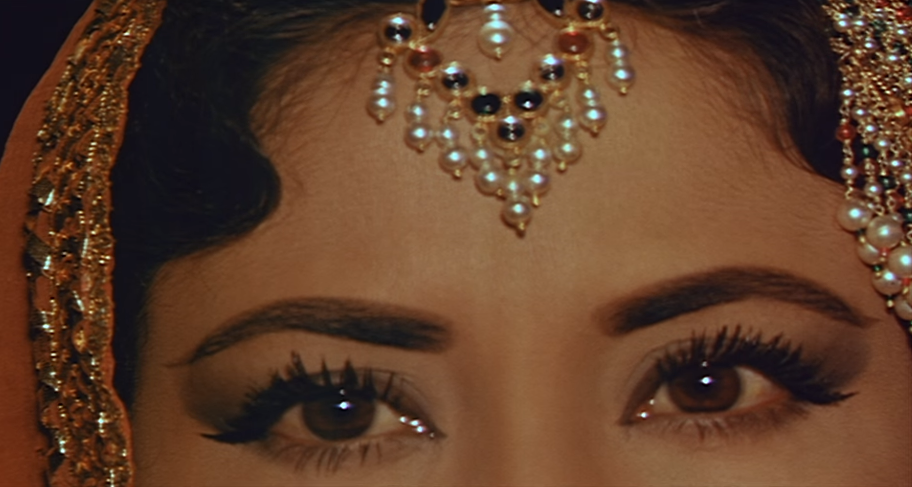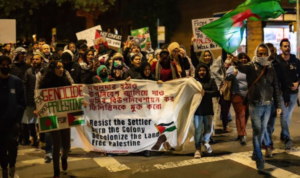The Truth about being a “Brown” Girl in America

Being a teenager in America is like being a rat in a maze. We are constantly running around and trying to figure out how to be successful and live up to the crazy standards established by society. It seems as if we are stuck and will never be able to escape this insanely complicated maze that is life. But being a “brown” teenage girl in America, well that’s like being a rat in a jungle.
In this jungle, we find the overbearing parents, the aunties who feel as though they are entitled to give you their opinions on your body. Then, there is the pressure of being the perfect student and of fitting into a world where most people don’t think you belong. The list goes on and on and on, but I think you get the idea of what brown girls face.
Of course, girls from any background can face those issues, but I want to talk about “brown” girls because I am one of them. In other words, I am not just the rat in a maze; I am a rat in a jungle. I have gathered some stories and personal sentiments from some of my friends, who are all powerful and courageous “brown” girls who live in America and choose to pursue their dreams, not that of their parents’! I hope that by reading my story and their stories, “brown” girls feel that they’re not alone and they can be powerful and courageous!
Let’s begin with my story. I am trying to navigate through life, but it’s really hard. I work hard at school to get A’s just so I can hear my parents’ words of endearment, telling me that I’m amazing. I study for the SATs to get a high score so they can be proud of me. I need to get into a top university so they can brag to their friends about me going there. I don’t know if you noticed, but there’s a common denominator in all those things that I mentioned: my parents.
Regardless, I want to succeed in life, but because of all the pressure and stress my parents put on me, I don’t know what I want to be successful at. This confusion causes me to occasionally break down like an overworked engine. What I do know is that I don’t want a job in the STEM field. My parents’ faces darkened upon hearing this. For them, it’s a problem they need to fix, an engine that needs replacing, so they told me to research more and figure something out. They won’t accept that I’ve already done the research and I’ve already figured out that I don’t want to work in the STEM field.
I can even hear my mom on the phone telling her family how I am interested in pursuing business in university, and I can also hear the disappointment in her voice, which she doesn’t try to hide.
Meanwhile, there is a 16 year-old, Indian and Palestinian American girl who feels the peer pressure of fitting into the “white” majority of girl cliques at school: “Even for the few minorities that did join the white girl friends groups, they were called ‘whitewashed.’ Since elementary school, kids have mocked my cultural food and my parents’ accents.” Ultimately, it did not matter for her to be born and raised in America.
Likewise, a fifteen-year-old Bangladeshi-American says, “It’s very conflicting growing up in between two totally different polar opposite cultures. We try to bridge the gap between the two different worlds and find a balance, but we can’t do it. I know if I was born a boy, my life would be infinitely easier.” I feel the pressure of being as “flawlessly modest and intelligent” as the other immigrant “brown” girls my parents idealize.
Perhaps the answer to “why” is explained by this 16-year-old Indian-American: “Our parents grew up in a place where they were physically reprimanded by their teachers, so to them our educational system is much easier. You get stereotyped as being the smart, nerdy kid that always has the answer to every question.” Over time, the stress put on “brown” girls by “brown” and “non-brown” communities accumulates, causing an emotional breakdown. “I often get called ‘whitewashed’ because my skin tone is lighter compared to most Indian girls, but that’s not something I can control. The beauty standards that exist today don’t incorporate South Asian girls. People say they will stop making fun of us, but never stop; magazines promise to diversify, but never do; ‘brown’ and ‘non-brown’ societies tell us that our concerns are insignificant, but they aren’t.”
As stated earlier, being a “brown” teenage girl in America, well that’s like being a rat in a jungle.
Read More
The Legacy of Boi Mela
Every year in February, the month-long national book fair welcomes...
Read MoreMillennial Amma: How to Explain a Global Crisis As a Parent
Rumki Chowdhury shares tips for how to talk to children...
Read MoreBegum Rokeya’s Millennials
A tribute to a pioneering Bengali feminist writer, educator and...
Read More



